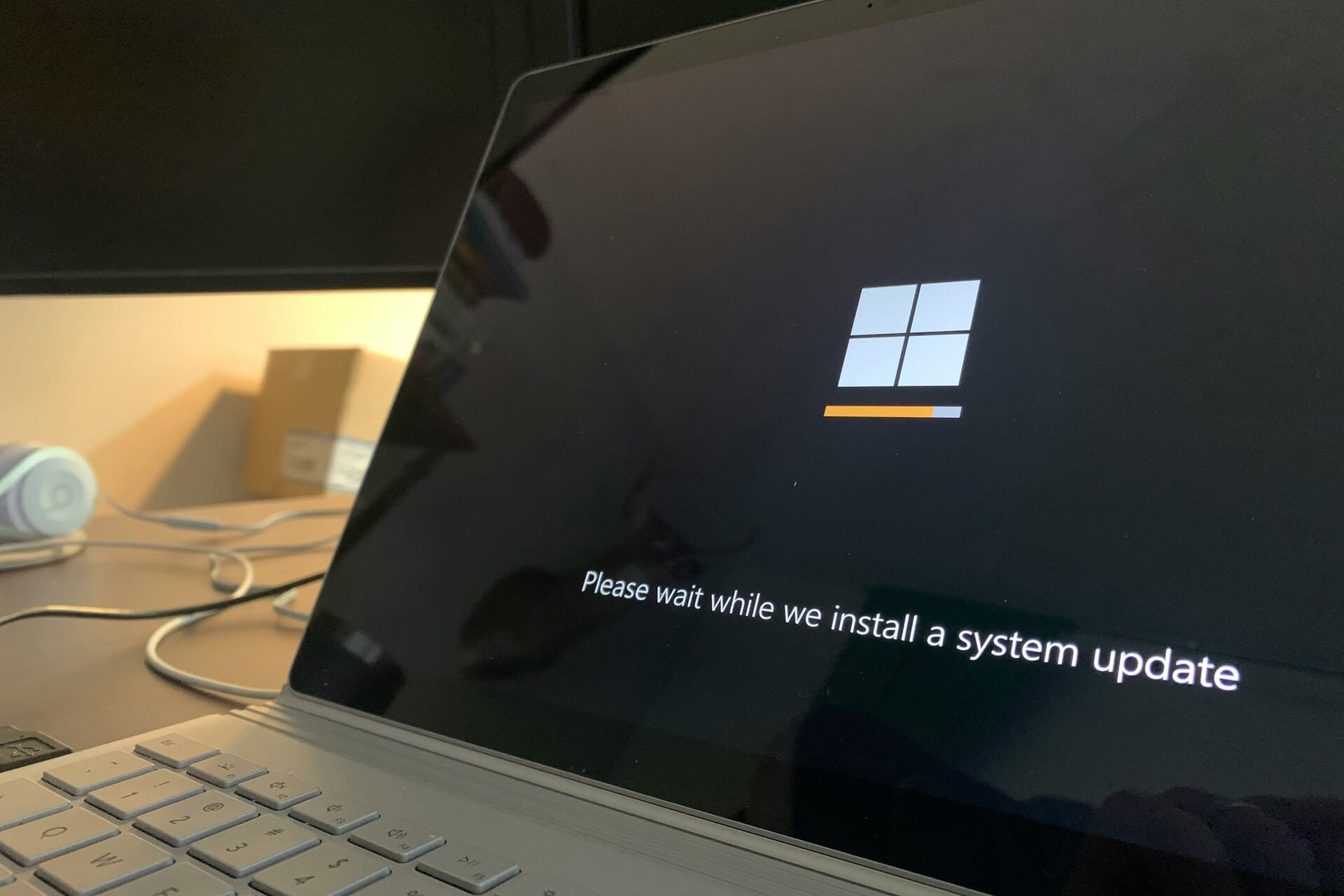Yes, most organizations should upgrade to Windows 11 now to avoid security vulnerabilities and maintain compliance when the end of support for Windows 10 arrives
Here are the key reasons why upgrading makes sense for your business:
- Enhanced security features with hardware-based protection, including TPM 2.0
- Continued security updates beyond the October 2025 deadline
- Improved performance on compatible desktops and laptops
- Future compatibility with new software and applications
- Better productivity tools for modern workplaces
- Compliance advantages for regulated industries
- Advanced remote work and collaboration capabilities
With Windows 10’s end of support scheduled for October 14, 2025, businesses face a critical decision about whether to upgrade to Windows 11.
However, many business owners worry about the complexity of migrating their entire IT infrastructure.
Without proper planning, a Windows upgrade can disrupt operations, cause compatibility issues with critical applications like Adobe Creative Suite or specialized business software, and leave your team struggling with the new user interface during busy periods.
The consequences of delaying could be even worse; unsupported systems become vulnerable to malware attacks, regulatory compliance issues, and potential data breaches.
At CMIT Solutions, we’ve successfully guided thousands of businesses through Windows migrations over our 25+ years of operation. Our systematic approach ensures minimal downtime while maximizing the security and productivity benefits of upgrading from Windows 10 to Windows 11.
Our managed IT support services ensure seamless Windows 11 transitions with zero business disruption.
Do I Have to Upgrade to Windows 11?
Technically, you don’t have to upgrade immediately, but waiting creates significant risks for your business operations and security posture. Microsoft will stop providing security updates and technical support for most Windows 10 versions on October 14, 2025, which is when the current version of Windows 10 reaches its end of life.
After this date, your computers running Windows 10 will continue to function, but they’ll become increasingly vulnerable to cyber threats. New vulnerabilities discovered after the end of the support date won’t receive patches, leaving your systems exposed to potential attacks.
For businesses handling sensitive customer data or operating in regulated industries, this creates serious compliance and liability concerns according to CISA’s cybersecurity guidelines.
You have several alternatives if an immediate upgrade isn’t feasible:
| Option | Cost | Timeline | Pros | Cons |
|---|---|---|---|---|
| Direct Upgrade | Still free (if compatible) | 1-3 months | Cost-effective, familiar hardware | Requires compatible systems that meet the Windows 11 system requirements |
| Extended Security Updates | $61+ per device annually | Up to 3 years | Delays upgrade pressure | Expensive, temporary solution |
| New Hardware | $800-2000+ per device | 3-6 months | Latest features, guaranteed compatibility | Higher upfront investment |
| Cloud Migration | Monthly subscription | 2-4 months | Scalable, managed infrastructure | Ongoing costs, internet dependency |
With approximately 3 months remaining until the support deadline, now is the optimal time to assess your options and develop a migration strategy. Extended Security Updates (ESU) provide a temporary bridge, with pricing starting at $61 per device for businesses and scaling up significantly in subsequent years.
Hypothetical scenario: Consider a small accounting firm with 10 older PCs that don’t meet Windows 11 requirements. Rather than paying $610 annually for ESU, investing in new hardware might provide better long-term value while ensuring compatibility with future software updates.
Manufacturing companies with specialized legacy software face unique challenges, as their critical applications may require extensive testing before any OS transition. Early planning allows time to work with software vendors and identify potential compatibility issues.
The importance of regular software updates and patches cannot be overstated in today’s threat landscape. Microsoft’s approach to enhanced cybersecurity protections makes Windows 11 a more secure platform than previous Windows versions.
Don’t wait until the October deadline creates urgency. CMIT Solutions can assess your current infrastructure and create a migration timeline that minimizes business disruption. Call (800) 399-2648 to schedule your Windows 11 readiness assessment.
Is Windows 11 Good?
Yes, Windows 11 has matured significantly since its 2021 release and now represents a stable, secure platform for business operations. After using Windows 11 for several years in enterprise environments, the consensus among IT professionals is overwhelmingly positive.
Key improvements that make Windows 11 an excellent choice for businesses include:
- Enhanced Security Architecture: TPM 2.0 and Secure Boot are enabled by default, providing hardware-based protection against firmware attacks and unauthorized access. This represents a significant upgrade from Windows 10’s optional security features and provides better defense against malware.
- Performance Optimizations: Modern memory management and improved CPU scheduling deliver faster boot times and more responsive application performance, particularly on systems with compatible Intel and AMD processors.
- Streamlined User Interface: The redesigned Start Menu and taskbar provide a cleaner, more organized workspace. While the taskbar moved to the center by default, users can easily move it back to the left if they prefer the traditional layout.
- Gaming and Multimedia Enhancements: DirectStorage technology benefits businesses that rely on graphics-intensive applications for video editing, design work with Adobe Creative Cloud, or multimedia presentations with improved performance for music and video files.
- AI Integration: Built-in AI capabilities through Copilot help automate routine tasks and provide intelligent assistance for document creation, data analysis, and workflow optimization.
- Enterprise Management Improvements: Enhanced group policy controls, improved deployment tools, and better integration with Microsoft 365 services simplify IT administration for business environments.
✔️ Our cyber security checklist includes Windows 11 migration as a critical security improvement for 2025.
After four years in the market, Windows 11 comes with a fresh look and improved functionality that have been well-received by end users, while administrators appreciate the enhanced security controls and management features.
Our IT procurement services ensure you get the right hardware for optimal Windows 11 performance and compatibility.
Should I Upgrade to Windows 11 from Windows 10?
The decision to switch to Windows 11 should be based on your specific business needs, hardware compatibility, and timeline constraints. For most organizations, the answer is a clear yes, but the timing and approach require careful consideration, given the approaching deadline.
Reasons Why You Should Upgrade to Windows 11
Moving to the new Windows 11 platform provides compelling advantages that justify the investment for most businesses:
- Hardware-Based Security Protection: Windows 11 requires TPM 2.0, which provides encrypted storage for credentials and cryptographic keys. This hardware-based approach offers significantly stronger protection against advanced persistent threats and credential theft than software-only solutions.
- Imminent Support Deadline: With Windows 10 reaching end of life in October 2025, delaying your upgrade means operating on borrowed time. Organizations that wait until the last minute often face rushed implementations and higher costs due to compressed timelines.
- Performance Benefits on Modern Hardware: Windows 11 includes optimizations for multi-core processors and improved memory management that can deliver measurable performance improvements, particularly on systems manufactured within the last three years.
- Future Software Compatibility: New applications and updates increasingly target Windows 11 as their primary platform. Staying on Windows 10 may limit your ability to adopt new productivity tools and 3rd party apps as vendors focus development efforts on the latest OS.
- Enhanced Productivity Features: Virtual desktop improvements, Snap Layouts for window management with intuitive drag-and-drop functionality, and integrated Microsoft Teams functionality streamline daily workflows and improve collaboration efficiency.
- Remote Work and Collaboration: Windows 11 provides better support for hybrid work environments with improved VPN integration, enhanced video conferencing capabilities, and more robust remote desktop performance.
- Regulatory Compliance Advantages: Many compliance frameworks now recommend or require current operating system versions with active security support. Using an unsupported OS can create audit findings and compliance violations.
Our experience with ransomware protection for small business implementations shows that Windows 11’s enhanced security features provide measurably better protection against modern threats. The investment in upgrading pays dividends through reduced security incidents and improved operational stability.
Businesses that understand how to prevent cyber attacks recognize that operating system currency is a foundational security control that underpins all other protective measures, especially when considering the enhanced Windows Defender capabilities in Windows 11.
Reasons Why You Might Be Put Off Upgrading
Despite the clear benefits, legitimate concerns may make some organizations hesitant to proceed with Windows 11 migration:
- Hardware Compatibility Constraints: Many existing PCs don’t meet Windows 11’s strict system requirements, particularly the TPM 2.0 and CPU generation requirements. This may necessitate hardware replacement rather than taking advantage of the free upgrade offer.
- User Training and Adaptation: The updated user interface, modified Start Menu, and new taskbar layout require employee training and adaptation time. During busy periods, even small workflow disruptions can impact productivity.
- Legacy Application Compatibility: Critical business applications, particularly older or specialized software, may not be available for Windows 11. This creates the need for application testing, vendor coordination, and potential replacement of essential tools.
- Budget and Resource Constraints: Between potential hardware costs, software licensing, professional services, and staff time, Windows 11 migration represents a significant investment that may strain IT budgets, especially for smaller organizations.
- Operational Timing Concerns: Many businesses prefer to avoid major system changes during peak seasons, fiscal year-end periods, or other critical operational windows. Finding the right timing for migration can be challenging.
- Change Management Complexity: Coordinating the technical aspects while managing user expectations, training needs, and business continuity requirements adds layers of complexity to the project.
Hypothetical scenario: Consider a dental practice with specialized imaging equipment and patient management software. Their older PCs may not meet Windows 11 requirements, and their critical applications may need extensive testing or replacement before migration is possible.
Similarly, a construction company with field workers using older laptops for project management faces the dual challenge of hardware replacement costs and ensuring mobile workforce productivity during the transition.
Knowing these challenges is where choosing an MSP becomes valuable. Professional IT services can assess your specific situation, identify potential obstacles, and develop strategies to minimize disruption while maximizing the benefits of your Windows 11 migration.
Ready to upgrade but concerned about the complexity? CMIT’s certified technicians handle everything from compatibility assessments to full deployment. Contact us at (800) 399-2648 for a customized migration plan.
Is Windows 11 Better Than Windows 10?
Windows 11 offers significant improvements over Windows 10, particularly in areas that matter most to business users.
While Windows 10 remains a capable operating system through its end of support date, Windows 11’s enhanced security, performance optimizations, and modern productivity features make it the superior choice for organizations planning their technology roadmap.
The most compelling advantage lies in security architecture. Windows 11’s requirement for TPM 2.0 and Secure Boot ensures hardware-based protection that simply wasn’t available as a standard feature in Windows 10.
This foundation provides stronger defense against firmware-level attacks and credential theft, which have become increasingly common vectors for cybercriminals targeting businesses.
Performance improvements are particularly noticeable on compatible hardware. Windows 11’s memory management system prioritizes active applications more efficiently, while improved CPU scheduling ensures better resource utilization across multi-core processors.
These optimizations translate to faster application launches, more responsive multitasking, and better overall system stability for boosting day-to-day productivity and efficiency.
The user experience refinements, while initially requiring adaptation, ultimately improve productivity. The centered taskbar and redesigned Start Menu provide a cleaner interface that reduces visual clutter.
Snap Layouts make window management more intuitive, while virtual desktop improvements help users organize their work more effectively in our changing workplace productivity environment.
However, Windows 10 still has certain advantages, particularly for organizations with older hardware or highly customized workflows. Its longer market presence means broader application compatibility and more predictable behavior.
For businesses with very specific legacy requirements, Windows 10 may remain the practical choice until hardware refresh cycles naturally enable Windows 11 adoption.
| Feature Category | Windows 10 | Windows 11 | Business Impact |
|---|---|---|---|
| Security | Optional TPM, manual Secure Boot | Required TPM 2.0, automatic Secure Boot | Significantly reduced security incidents |
| Performance | Standard memory management | Optimized for modern hardware | 15-20% improvement in application responsiveness* |
| User Interface | Traditional design | Modern, streamlined interface | Reduced training time after initial adaptation |
| Support Timeline | Ends October 2025 | Active through at least 2030 | Long-term operational stability |
| Hardware Requirements | Less restrictive | Stricter compatibility requirements | May require hardware investment |
*Based on CMIT Solutions’ deployment experience across client environments
⚖️ The decision ultimately depends on your organization’s specific circumstances, but the security benefits and extended support timeline make Windows 11 the more strategic choice for most businesses planning beyond 2025.
Windows 10 vs Windows 11
When comparing Windows 10 and 11, the differences extend beyond surface-level changes to fundamental improvements in security, performance, and user experience. Knowing these distinctions helps business leaders make informed decisions about their IT infrastructure investments.
The transition represents Microsoft’s most significant operating system evolution since the move from Windows 7, incorporating lessons learned from years of enterprise deployment and modern security requirements. While both platforms can handle current business applications effectively, their long-term trajectories diverge significantly.
| Comparison Area | Windows 10 | Windows 11 | Winner |
|---|---|---|---|
| Security Foundation | TPM optional, manual configuration | TPM 2.0 required, automatic hardening | Windows 11 |
| Performance | Adequate for most tasks | Optimized for modern hardware | Windows 11 |
| User Experience | Familiar but aging interface | Modern, productivity-focused design | Windows 11 |
| Support Lifecycle | Ends October 2025 | Active through 2030+ | Windows 11 |
| Hardware Compatibility | Broad compatibility | Stricter requirements | Windows 10 |
| Application Support | Universal compatibility | Excellent, with rare exceptions | Tie |
Windows 10 vs Windows 11 Performance
Performance improvements in Windows 11 are most noticeable in areas that directly impact business productivity and user satisfaction:
- Boot and Resume Times: Windows 11 systems typically boot 20-30% faster than comparable Windows 10 installations, with hibernate resume times showing even greater improvements due to optimized memory management.
- Memory Efficiency: The new OS prioritizes foreground applications more aggressively, ensuring active programs receive optimal system resources while background processes use memory more efficiently.
- CPU Utilization: Enhanced thread scheduling provides better performance on modern multi-core processors from Intel and AMD, particularly benefiting applications like video editing software, database operations, and virtualization workloads.
- Battery Life for Laptops: Mobile devices running Windows 11 typically see 15-25% improvement in battery life compared to Windows 10, primarily through better power management and processor optimization.
- Gaming and Graphics Performance: Even for business applications that use graphics acceleration, Windows 11’s DirectStorage and improved graphics stack provide smoother performance for presentations, design work, and multimedia content.
- Network and Storage Performance: Optimized drivers and improved I/O scheduling result in faster file transfers and more responsive network operations, particularly important for businesses that rely heavily on cloud applications.
Based on CMIT’s real-world deployment data across hundreds of business environments, organizations typically see measurable improvements in user satisfaction and application responsiveness after migrating compatible hardware to Windows 11.
Windows 11 vs Windows 10 Pro
For business environments, the Pro editions of both operating systems offer essential enterprise features, but Windows 11 Pro provides significant advantages in management and security capabilities compared to Windows 10 Pro.
Windows 11 Pro includes all the foundational business features of Windows 10 Pro, domain join capabilities, group policy management, BitLocker encryption, and remote desktop functionality.
However, it extends these capabilities with enhanced security controls and management tools designed for modern business environments. The Pro edition allows you to connect multiple devices seamlessly and provides better integration with cloud services.
The most significant improvement lies in security management. Windows 11 Pro’s integration with Microsoft Defender provides enterprise-grade threat protection that automatically adapts to emerging threats. The enhanced Windows Hello implementation supports more authentication methods and provides better integration with corporate identity systems.
Management capabilities receive substantial upgrades through improved Windows Autopilot deployment, enhanced mobile device management (MDM) features, and better integration with Microsoft 365 business services.
These improvements reduce IT administrative overhead while providing more granular control over corporate devices. Organizations can buy a new system knowing it will integrate smoothly with existing infrastructure.
The comparison between Windows 10’s capabilities and Windows 11 features shows clear advantages for the newer platform, particularly when considering the top 5 features that make Windows 10 a solid foundation, while recognizing that Windows 11 builds upon these strengths.
Need help weighing your Windows upgrade options? CMIT Solutions provides comprehensive migration planning, hardware assessments, and deployment services tailored to your business needs. We ensure your transition is smooth, secure, and cost-effective. Call (800) 399-2648 for your free business consultation.
Why Choose Professional IT Services for Your Windows 11 Migration?
Windows 11 migration involves far more complexity than a simple software installation, particularly for businesses that depend on reliable IT operations for daily productivity. Professional IT services provide the expertise and systematic approach necessary to ensure successful transitions while minimizing operational disruptions.
- Risk Mitigation and Business Continuity: Professional migration services identify potential compatibility issues before they impact operations. This includes testing critical applications, validating hardware configurations, and developing rollback procedures in case of unexpected problems during the installation of Windows 11, helping your business prepare for cyber threats while ensuring stability
- Compliance and Security Expertise: IT professionals ensure your Windows 11 implementation meets industry-specific compliance requirements while maximizing security benefits. This includes proper configuration of TPM 2.0, Secure Boot settings, and integration with existing security tools to keep your environment using it safely.
- Minimized Downtime Strategies: Experienced technicians can perform migrations during off-hours, implement phased rollouts, and use imaging technologies to reduce the time each individual system is offline during the upgrade process.
- Comprehensive Planning and Testing: Professional services include thorough pre-migration planning, compatibility testing for both Windows 11 Home and Pro editions, user training development, and post-migration support to ensure smooth transitions and user adoption.
- Ongoing Support and Troubleshooting: After migration, professional IT partners provide continued support for any issues that arise, optimization recommendations, and assistance with new Windows 11 features to maximize your investment.
- Hardware Assessment and Procurement: IT professionals can evaluate whether your existing systems can run Windows 11, recommend cost-effective upgrade paths, and coordinate new computer procurement to ensure optimal performance.
Companies that attempt DIY Windows 11 migrations often encounter unexpected challenges that can result in extended downtime, data loss, or security vulnerabilities. Professional services eliminate these risks while ensuring you receive maximum benefit from your new operating system investment.
Knowing how to prepare for cyber threats includes recognizing that major IT changes like OS migrations require professional expertise to maintain security posture throughout the transition process.
CMIT Solutions has successfully migrated thousands of businesses to Windows 11 with minimal disruption and maximum security benefits. Our certified technicians handle every aspect of your transition, from initial assessment to post-migration support. Don’t risk your business operations with a DIY approach. Contact CMIT Solutions today at (800) 399-2648 for your comprehensive Windows 11 migration consultation.
Our cybersecurity services provide the foundation for secure Windows 11 deployments with ongoing protection.
Frequently Asked Questions
Can we install Windows 11 on computers that don’t meet the minimum requirements?
While technical workarounds exist to bypass Windows 11’s hardware requirements, we strongly advise against this approach for business environments. Installing Windows 11 on incompatible systems can result in stability issues, performance problems, and most critically, loss of security protections that the system requirements are designed to ensure. Additionally, Microsoft may not provide support or updates for installations that don’t meet their specifications, creating potential vulnerability and compliance issues.
How do I know if our current business applications will work after the Windows 11 upgrade?
Application compatibility varies by software age and complexity, but most modern business applications work seamlessly with Windows 11. We recommend creating a comprehensive inventory of your critical software and testing each application in a controlled environment before full deployment. Legacy applications, particularly those designed for Windows XP or Windows 7, may require updates, replacements, or virtualization solutions to function properly in the new Windows 11 environment.
What’s the difference between Windows 11 Home edition and Pro for business use?
Windows 11 Home edition lacks essential business features like domain joining, group policy management, BitLocker encryption, and advanced networking capabilities that most organizations require. Windows 11 Pro includes these enterprise features plus enhanced security controls, management tools, and better integration with business services. For any organization with more than a few computers or specific security requirements, the Pro edition is the appropriate choice.
If we upgrade now, will we need to upgrade again when Windows 12 comes out?
Microsoft has not announced Windows 12, and its current approach suggests Windows 11 will receive ongoing feature updates rather than requiring a major version upgrade. The Windows-as-a-Service model means you’ll receive regular updates and new features through Windows Update rather than purchasing separate new versions. This approach provides better long-term value and eliminates the disruption of major OS migrations every few years.
Can employees work from home during our Windows 11 migration process?
Yes, remote work is possible during migration, though it requires careful planning to ensure productivity and security. We typically recommend phased approaches where remote workers receive priority for migration to minimize disruption to their home office setups. Our cross-platform communication solutions ensure seamless collaboration throughout the transition process, allowing teams to maintain productivity regardless of their location or device status during the upgrade timeline.





